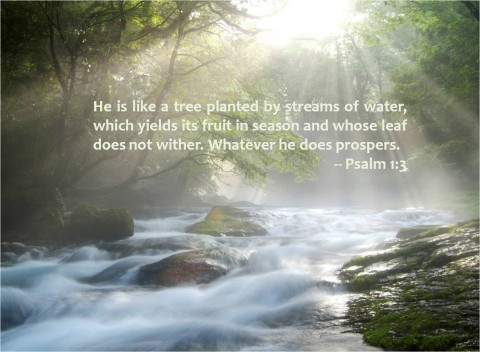
Proverbs 1:7 reads, “The fear of the Lord is the beginning of knowledge, but fools despise wisdom and instruction.” The Hebrew word for fool in this context, and in other places in the Old Testament, is a word which means morally defiant. The fool Solomon describes here is very much like a snake, deaf and unable to charm. Until the fool is willing to know God, he despises Godly instruction.
According to the psalmist in Psalm 58, unredeemed people are seen as wicked in the eyes of God, “Even from birth the wicked go astray; from the womb they are wayward and speak lies. Their venom is like the venom of a snake, like that of a cobra that has stopped its ears, that will not heed the tune of the charmer however skillful the enchanter may be.”
Some of the psalmist’s words are hard to understand. The important part to remember is, when David wrote these words, he is asking God to punish the wicked; he is not asking God to allow him to punish them. Dietrich Bonhoeffer, a German pastor, anti-Nazi, and one of the greatest martyrs for Jesus Christ wrote a small book called Psalms: The Prayer Book of the Bible. Bonhoeffer lived his life according to the richness of the Book of Psalm. He understood from his prison cell in Nazi Germany what it was like to be tormented by the wicked. He felt the depth of evil, as David is describing in Psalm 58. He knew well of the existence of the ungodly.
Many times in the Book of Psalm, the authors cry out to God to punish the wicked; to declare judgment upon them: “The righteous will be glad when they are avenged, when they bathe their feet in the blood of the wicked.” The words are very sombering when we consider our God to be of love and light. David meant here simply the wicked will die and the righteous will not.
So what do we do with Psalm 58 and others like it? First, the important words to remember are, David was asking God to handle those who harmed him. It is no different from what we pray when we turn people over to God; those who sin against us or are cruel to us; those we believe are unjust and unfair. We lay them at the foot of the cross; we place them in the hands of God. It is not for us to handle but for God to handle in His time.
Secondly, we were all wicked before the redemption of Christ; before we were reborn in Him. Whether we want to accept such a thought or not, until we drenched the blood covering protection of Jesus Christ over us, we were/are considered lost among the wicked. That is why the battle for souls is so important to God and so important to Satan. Every soul counts.
Because Jesus was human on earth, He understands what it feels like to be treated cruelly and unjustly at the hands of mean and hateful people. The Psalms are the prayers and cries of human beings to God; humans in desperate situations; humans who believe in a God who protects and defends them against evil.
Bonhoeffer writes, “It is the incarnate Son of God, who has borne every human weakness in his own flesh, who here pours out the heart of all humanity before God, and who stands in our place and prays for us.” Psalms: The Prayer Book of the Bible, page 20-21.
Most of us will not experience the depth of evilness as David, Bonhoeffer, and many others tortured for their beliefs; but, some of us understand what it is like to face unfairness, hatefulness, and cruelty. Some of us know the deep emotions of betrayal and heartache at the hands of another. As David, we must turn those feelings over to God to handle. Only He can punish fairly. He is the only just Judge.
Today, as you pray, ask God to help you find peace with your enemies. Put them in the hands of God. Let Him deal with them. Remember who stands in your place and prays for you.







